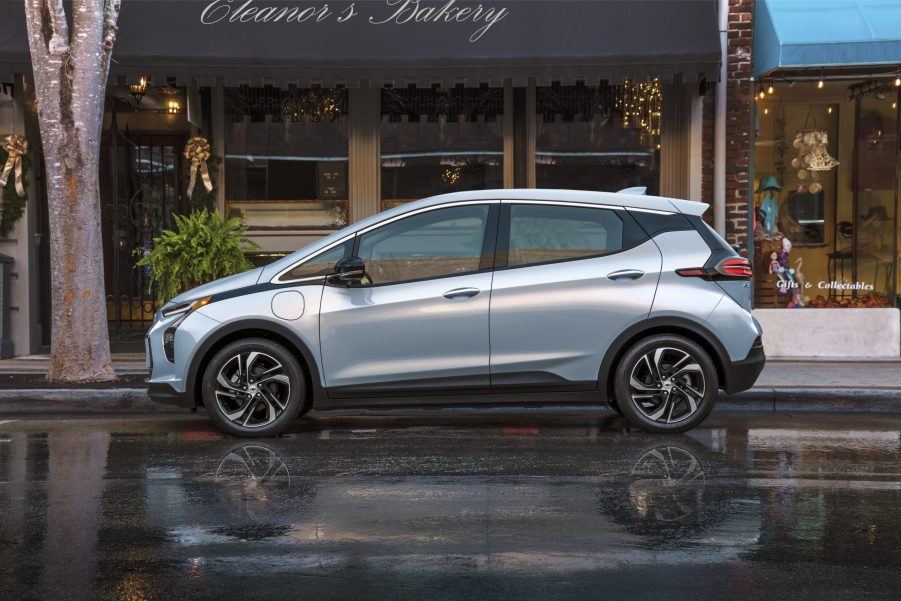
Battery Experts Examine Why the Chevy Bolt EVs Keep Catching Fire
In case you weren’t aware, Chevy Bolts have this “quirk” where they’ll catch on fire by design. It’s led many to question whether electric cars are actually safe. But after Chevy’s third recall, taking back all 141,000 cars, we’re finally getting some solutions to the problem. Albeit, the reasoning behind the Bolt’s spontaneous combustion isn’t straightforward.

What battery experts think may be causing Chevy Bolt EVs to catch fire
When the issue was first brought to the public, GM insisted that the battery failures were caused by a “torn anode tab and a folded separator.” That’s fancy-talk for the components of an electric car battery cell. And when enough of those cells fail, the battery can easily overheat.
However, battery experts such as Louis Hruska, who spoke to AutoWeek on the subject, say the issue is far more complex. There’s no doubt the issue revolves around the battery cells, but there are only two ways you can prevent the battery pack from failing. One solution is to build a perfect battery cell, but that’s easier said than done. So the “plan B” is to design a system that isolates overheating cells, and prevents them from affecting the rest of the battery pack.
But GM designed the battery packs, squishing cells close together to create more energy density. And on top of that, they didn’t develop a system for the Bolt to isolate overheating cells. Instead, the solution was to lower the energy output of the entire battery pack. But that didn’t stop the heat from spreading across numerous cells and then, eventually, causing the car to catch on fire.
How GM and LG Energy Solution are handling the issue

To remedy the problem, GM and LG have already dumped $2 billion into fixing the Chevy Bolt EVs. Though, LG took the bulk of the bill, paying $1.9 billion. Chevy Bolts from 2017 to 2019 have been recalled, and some of the second generation 2020 through 2022 models were brought in for repairs as well.
The brand is working quickly to get the bolts back on the market. Although, working quickly may have been what got GM into this snag in the first place. Electric car batteries aren’t easy to make, with materials that are ridiculously delicate to the point where automated machines can still break them.
However, to beat out Tesla, GM expedited the design process and released batteries that used old battery technology. Provided, they did beat Tesla to the punch, releasing their affordable EV in 2016 while Telsa released the Model 3 in 2017. But the Bolt’s ongoing reputation certainly isn’t as strong.
Bad batteries aren’t just a GM issue though, they’re an electric car issue. Almost every major player in the EV game has experienced recalls due to battery fires, including Tesla itself.
Why burning battery cells may be an ongoing problem

Each of the major players has systems in place to test not just every battery pack, but every individual cell of an electric car. GM did the same for the Bolt, but clearly, those systems weren’t thorough enough. Ford has had issues with the plug-in hybrid version of their Ford Kuga as well, even though they also test the individual cells of the battery.
GM is moving forward with their Ultium battery platform, which uses more advanced cooling systems and takes note of the mistakes made by the Chevy Bolt’s battery. But even with all the testing and research in the world, there’s no denying that we don’t fully understand electric car batteries yet.


